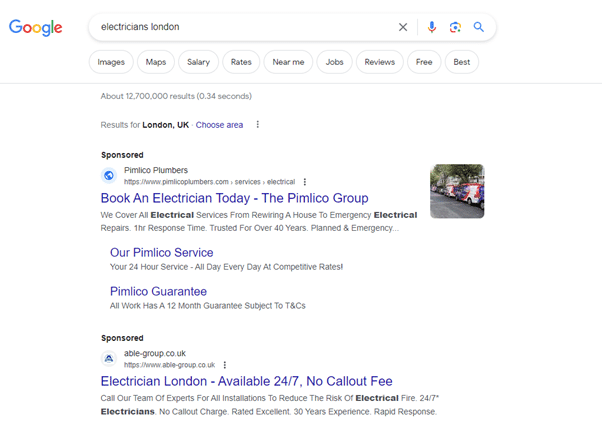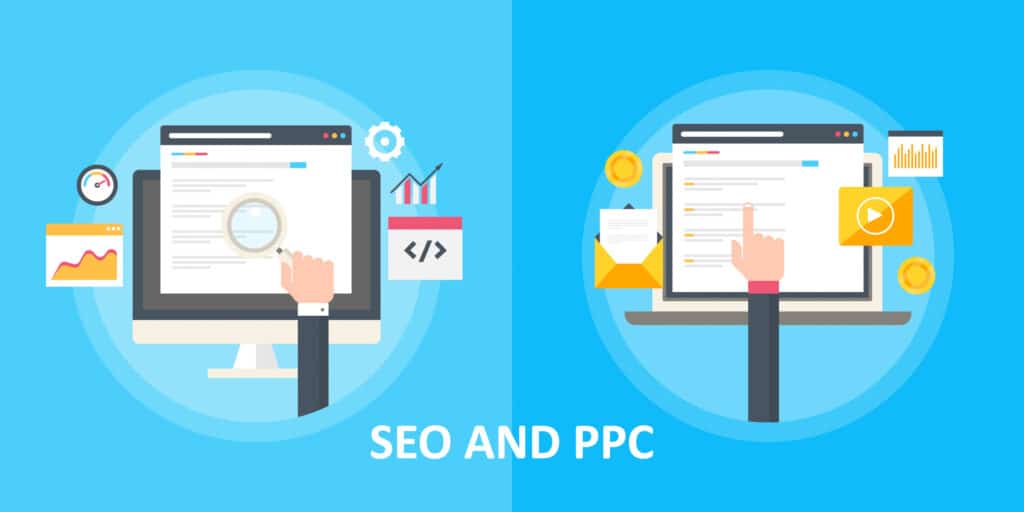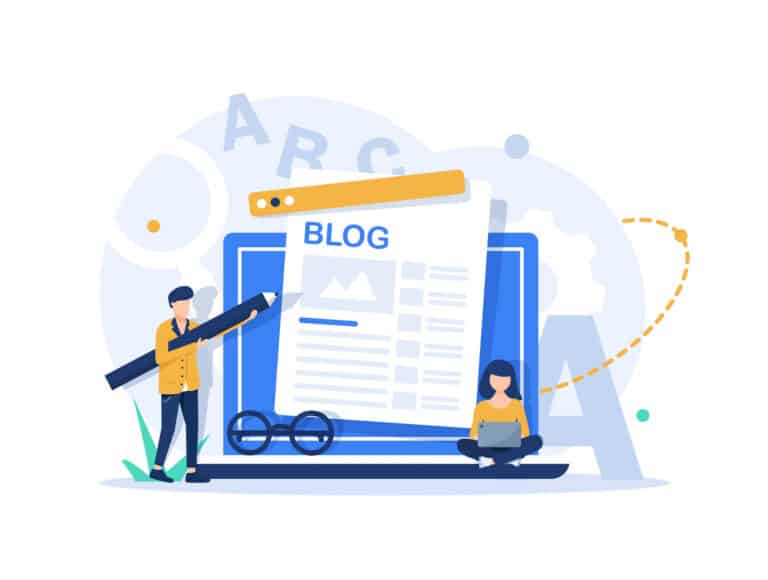When promoting your business online, Search Engine Optimisation (SEO) and Pay Per Click (PPC) advertising are two key strategies that should go hand in hand.
Both SEO and PPC are all about making your business’s website more visible and getting potential customers to your website. They take two quite different approaches to getting your website traffic, but each is a vital part of any online success.
Today, we’ll take a quick look at what each approach can offer you, and, more importantly, how they can work together to improve your business.
What is SEO?
SEO focuses on the organic (unpaid) side of things. It’s about optimising your website to be as visible as possible—for high-quality traffic—on search engine results pages (SERPs) when people search your chosen keywords. Think: What would you want to be found for on a Google search?
An SEO expert will do this by improving the technical elements of your website, which allow search engines to better understand what your website is and who it is for, as well as the front-end elements, which include everything a user sees, from images to copy to layout and flow. Because search engines use complicated algorithms to decide which websites show when and where on a results page, a good SEO approach needs to be sophisticated and comprehensive.
What is PPC?
PPC, on the other hand, looks at paid advertising, specifically a model where advertisers pay when users click their ads.
For search engines, this traditionally means campaigns that involve a business bidding on those important keywords (such as their top-selling products, industry and location, or even competitor brand names) to place ads on the search engine results page. These could be text (search) or product (shopping) ads.

PPC goes beyond this, into video advertising, paid social media advertising and more, but the part most closely tied to SEO is search engine marketing. We’ll keep our focus there.
How SEO and PPC Can Help Each Other
SEO is a long-term, organic strategy. PPC is a short- to long-term paid strategy. Both are essential for a business looking to grow their digital brand.
So, how can these two strategies help each other? Both are trying to improve quantity and quality of traffic to a website, and both strategies rely on keywords. They can help each other in a few ways:
Keyword and Copy Research
Your PPC campaigns are the perfect way to test your keywords, persuasive language and more. If you’re not sure the keywords you want to use are right for your business, why not test them?
You can quickly test dozens or even hundreds of keywords to find the ones that have volume, get clicks, and ultimately convert visitors to your website into leads or customers. SEO will take months, if not longer, to get the same information.
Google also offers you search term reports that let you see related terms that have also triggered your ads and might be a good choice to include as keywords. It can also show you where you might be mistaken about what customers mean when they search for certain keywords, letting you exclude those from your strategy moving forward.
Similarly, you can test different calls to action in your ads, different UPSs (do users click more often when you mention ‘free shipping’ or ‘sustainable production’?), and landing pages on your website. All of this is information that can make your SEO strategy stronger.
Maximizing Search Page Coverage
When you have a strong SEO strategy that’s getting your website on page 1 for your keywords, search ads pushing your paid efforts to the top of the page, and shopping ads running (if you’re an online retailer), you start to take up a lot of the search results page.
This is good in several ways: it gives your customers multiple opportunities to engage, it edges your competition further down the page, and, if they come back over several hours or days, it offers multiple touchpoints with your business.
Kickstarting Parts of the Business
Are some categories of your business doing very well online, while others struggle? For example, perhaps you’re a hotel whose room sales online are very healthy but your conference rooms aren’t getting any attention. You may be a shoe retailer seeing great traction for white trainers but no traffic on your boot pages.
If that’s the case, you can focus your PPC efforts on the underperforming segments while you work on SEO in the background to improve their organic rankings over time. Your PPC may also tell you that your strategy for those parts of the business needs a few tweaks, if ads don’t convert. You can learn more about your customer and use that to improve both your SEO and PPC.
In conclusion, SEO and PPC are both vital to any business with a website, and they can help each other. If you’re working with a digital marketing agency, make sure to ask them how they use these two approaches together; you don’t want to let good information go to waste! If you’re looking for help with your own online strategy, don’t hesitate to get in touch today.






